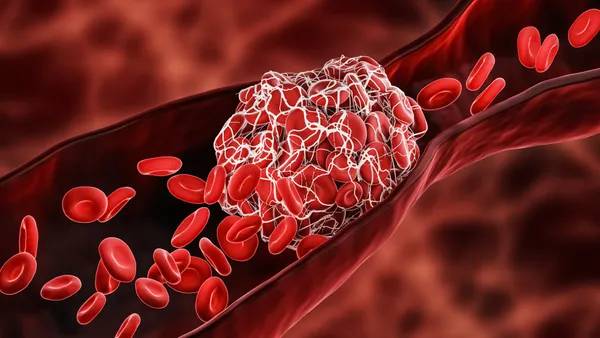Dive Brief:
- Canadian Aquinox Pharmaceuticals' once-daily, oral rosiptor (AQX-1125) failed to meet the primary endpoint of the Phase 3 LEADERSHIP 301 trial in interstitial cystitis/bladder pain syndrome (IC/BPS), leaving the company's stock value in tatters.
- Rosiptor did not achieve a statistically significant reduction in maximum daily bladder pain score compared with placebo between baseline and week 12 in women. A previous Phase 2 bladder pain study missed its primary endpoint but met some secondary endpoints.
- The company will halt all further development of the drug and plans to evaluate the pipeline, as well as "other strategic options available to the company," with a decision expected later in 2018.
Dive Insight:
As well as interstitial cystitis/bladder pain, Aquinox was assessing rosiptor, an activator of SHIP1, in chronic obstructive pulmonary disease and allergic asthma, but these both failed in Phase 2 trials despite early promise. An ongoing chronic prostatitis/chronic pelvic pain syndrome (CP/CPPS) will also be nixed with the cessation of the drug's development.
So, all in all, it's not looking good for Aquinox, trading close to its 52-week low at close of play on Wednesday. Rosiptor, an anti-inflammatory agent, was the only clinical-stage drug in the company's pipeline, according to the website, leaving it with a natural product library and a collection of classes of SHIP1 activators.
SHIP1 is a novel and unproven target: "No drug which specifically targets SHIP1 has been demonstrated to provide clinical benefit or been approved by any regulatory authority for the treatment of disease," the company said in a December 2017 Form 10-k.
"This is a disappointing result for Aquinox and for patients," said David Main, president and CEO of Aquinox in a statement. "We have conducted a number of sensitivity, subpopulation, and secondary endpoint analyses and none demonstrate a benefit of rosiptor over placebo."
In May 2017, Aquinox announced an exclusive licensing agreement to Astellas for rosiptor for the Asia/Pacific region, including Japan. It's not yet clear how the halt in development will affect this deal, potentially worth up to $155 million, including a $25 million upfront payment.













